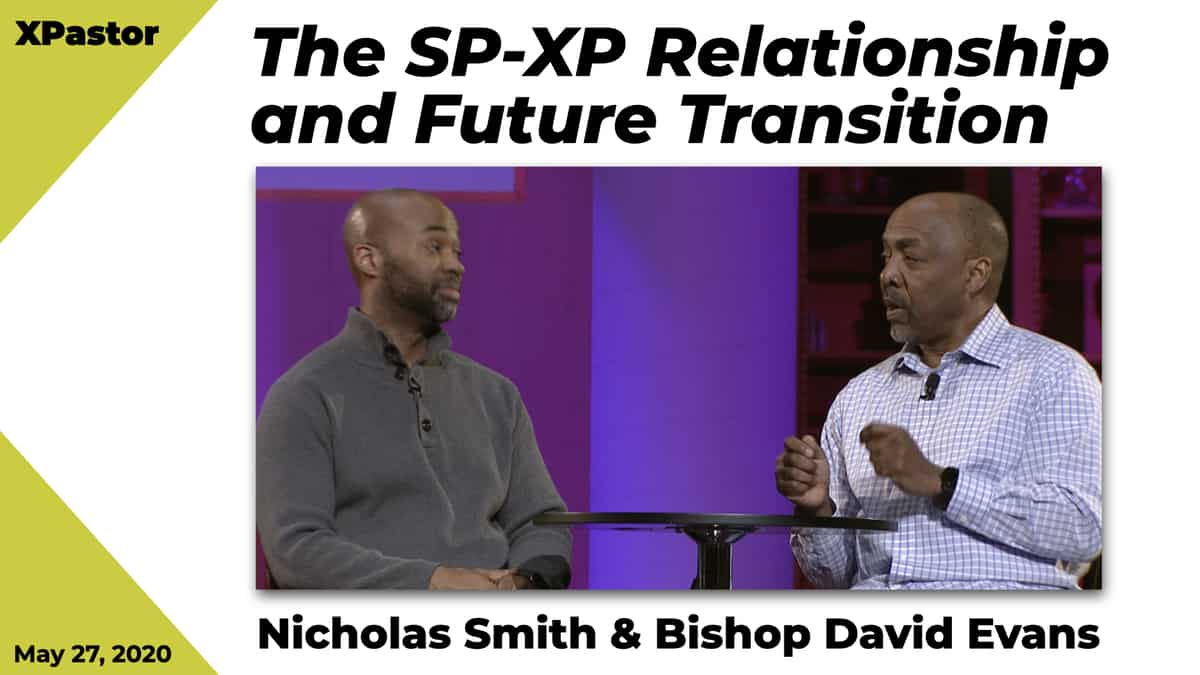As was mentioned in the title, I’ve learned five lessons during my first eighteen months as an Executive Pastor. In order to provide some context, I will briefly state my ministry experience. My background has both local church and hospital ministry components, with the largest being over seven years as a Senior Pastor of a local Baptist church. Chaplaincy experience includes five years at two hospitals, one being a psychiatric/substance abuse treatment facility. Before receiving a promotion to my current role as XP at Grey Stone Church, I was hired to serve as the Minister of Senior Adults and Pastoral Care.
Here are my lessons learned:
Lesson #1: A Successful 1-2 Relationship Requires Work!
At the very outset of my new role as XP, Clay Waters, my Senior Pastor and I read through the book, Leading from the Second Chair. We met for coffee to discuss each chapter and reflect on our insights and how we could function effectively. That experience was a wonderful way to begin as an XP and opened my eyes to the fact that the relationship between number one and number two, SP and XP, is critical to the health of the church ministry. I believe that now as much as then!
What I’ve discovered since then is that the effort into the 1-2 relationship did not stop at the end of that book study. It was only a beginning. I found myself observing, listening to, and even studying the man God called as SP of Grey Stone Church. In order to faithfully fulfill my goals as XP, I make it a priority to strive to learn how Clay Waters functions and operates as a church leader.
The natural byproduct of these efforts is the ability to improve the efficiency of the many day-to-day operations of church ministry—I can authorize decisions without needing to first obtain approval. I believe this is how any XP can alleviate the infinite burdens and demands on the SP. In addition, the church ministry gets shaped according to the vision God has given the primary spiritual leader. The authority of the XP should never supersede the known boundaries and principles of the SP.
Lesson #2: Leadership is an Art
My very first church job was as a housekeeper. It’s true. Each week, I cleaned the children’s hallway of the largest Baptist church in the local area. My duties included removing the diapers from each trash bin in every nursery room on Monday morning … after they had been ruminating overnight! God taught me so much about servanthood during that year, especially as I scrubbed the toilets for the pastoral staff.
A major lesson I learned was during a staff devotional time when the Children’s Pastor shared that “loving people is an art.” I was challenged from that day forward to genuinely relate and personally know each person I would serve in future ministry. In the seminary classroom, I had too often listened to professors boldly proclaim their prescription for how to run the church. Yet, I never heard much on how to successfully love the people for whom Christ died.
This idea eventually led me to a Scripture passage that serves as the centerpiece of my philosophy of ministry. Christ says in John 10:14 (NIV), “I am the good shepherd; I know my sheep and my sheep know me.” It is my conviction that pastors are to seek the same level of personal relationship with their flock.
As the Executive Pastor, these efforts shift to the individuals whom I oversee, particularly pastors and directors. The ministry team is able to function well together in unity and purpose—provided I am expending significant effort caring for and understanding each member. An impersonal “one size fits all” approach just won’t work.
Lesson #3: Trust the Process
This principle has been brought to me time and time again. It is definitely not a new one. To accept where my responsibilities end and God’s movement begins would seem to be a clearly defined place. I hope my struggle is similar to that of many church leaders, letting go of control and surrendering to God’s timing.
Accepting the position of XP began a new era in supervision. Not possessing the corporate/marketing background that many high profile XP’s bring into church leadership has been somewhat intimidating. It has felt like something of a scramble to catch up on the x’s and o’s of church management and administration. I still look at the new church organization chart and ask myself, “What were you thinking?!”
The biggest challenge has been providing oversight for the Child Enrichment Center, which serves over 100 children, ages six weeks to five years old. It would be an understatement to say it was a “hot mess” when I assumed the reins. Further, the CEC has not been without stress under my supervision. This responsibility exposed me to a new dimension of “putting out fires!”
In spite of all my successes and failures, God has granted me the privilege to become right-sized. It truly is a relief to assume the identity of Mary, not Martha, as understood in Luke 10:38-42. God knows what He is doing; I am simply called to be faithful in performing my due diligence. The church, which includes my ministry, is His process.
Lesson #4: Personal Experience Can Pave the Way, but it is Not Enough
My calling to ministry became clear as I began sharing my testimony in my college years. After several years of abusing alcohol and other drugs, God granted me a new life and purpose. Several Christian fellowships invited me to share my story. I knew the Lord granted me a platform to tell of His greatness.
Shortly after sensing this new direction in life, I encountered the trial that changed my life forever. I was afflicted with a chronic heart disease called cardiomyopathy, which resulted in congestive heart failure at the age of twenty-two. I was near death and there was discussion of a heart transplant.
Through the next fifteen years, I experienced a blessed life that included getting married, having two daughters and accepting a position of Senior Pastor at a Baptist church in Raleigh, North Carolina. Yet, these years were riddled with medications, blood work, doctor visits and trips to the ER. In 2005, my heart disease deteriorated to the point that only a heart transplant could save my life. To make a long story short, I underwent successful transplant surgery and have enjoyed over nine years of new life, terrific health and significant athletic achievements.
A positive result of suffering is the ability to connect with people, both Christians and non-Christians. To identify with the brokenness of others is a privilege and is oftentimes an easier bridge to relationships than the most impressive of academic pedigrees. In our culture of mistrust and skepticism, my identity as a pastor and a heart transplant recipient has paved the way for ministry to others.
However, it is not enough! Now that I am serving as an XP, there is no room to “rest on any laurels” from a testimony or motivational speech that keeps listeners on the edge of their seats. What’s more important is how I lead those He has allowed me to reach. I have read more leadership books and articles in the past eighteen months than in all my previous years combined. Enrolling in the XPastor Online Course is simply another step in my professional growth and development.
Lesson #5: The Key to Effective Ministry is the Holy Spirit
I strive to lead and serve by principles rather than rules. Following the rules doesn’t require the personal dependence on God that the application of principles demands. First and foremost, I am called to a relationship with God. 1 Samuel 2:35 (HCSB) records the words of the LORD, “Then I will raise up a faithful priest for Myself. He will do whatever is in my heart and mind.”
This truth is the “welcome mat” at the door of remembering where I came from. During these times of great responsibility in leadership, it is more important than ever to maintain my personal relationship with God. This happens when time is devoted to Him in His Word, prayer, meditation and good old-fashioned solitude. The Holy Spirit has never failed to speak, guide, instruct, prompt or give me the words in any delicate situation. Yet, failure by being “poor in spirit” on a daily basis will lead to my inability to hear His voice.
Admittedly, I am tempted to complicate matters with blithe statements such as “I’ll handle it” and “I’ve got it covered.” It feels so rewarding to know I can resolve and lead through a sticky situation, and more so that the SP has granted me the authority to get the job done. But confidence becomes cockiness in a split second. Self-will can run riot in a church leader and its effects are devastating to the fellowship. I need the Lord more than ever!
Now that I think about it, maybe I’ll just refer to myself as Pastor Executive (PX).










